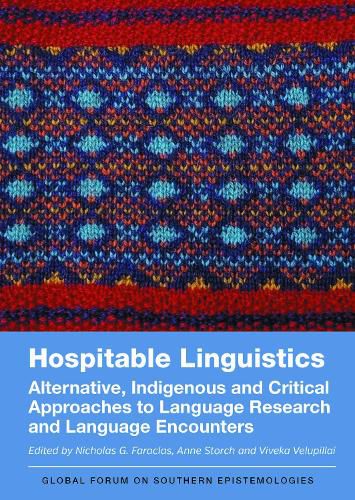Readings Newsletter
Become a Readings Member to make your shopping experience even easier.
Sign in or sign up for free!
You’re not far away from qualifying for FREE standard shipping within Australia
You’ve qualified for FREE standard shipping within Australia
The cart is loading…






Challenging the boundaries of linguistics as a field, and transgressing the limitations of genre in writing about language, this book explores the possibilities of what the authors call a 'hospitable linguistics'. It offers a critical discussion of how linguistics endeavors to domesticate, subdue and integrate both people and languages into existing academic structures and theories, and how as a discipline academic linguistics has barely begun to move beyond its colonial, patriarchal and conservative foundations. In this book, leading figures in their fields reflect on their own and others' practices and experiences in three key areas: the agency and power of refugees and migrants; Indigenous people's (in)hospitable responses to strangers; and hospitable language as expressed through art, music and artefacts. As a whole, the book represents a crucial intervention in attempts to fashion a new, more integrative, responsible and respectful linguistics that makes way for the ideas of people who are often the object of study.
$9.00 standard shipping within Australia
FREE standard shipping within Australia for orders over $100.00
Express & International shipping calculated at checkout
Challenging the boundaries of linguistics as a field, and transgressing the limitations of genre in writing about language, this book explores the possibilities of what the authors call a 'hospitable linguistics'. It offers a critical discussion of how linguistics endeavors to domesticate, subdue and integrate both people and languages into existing academic structures and theories, and how as a discipline academic linguistics has barely begun to move beyond its colonial, patriarchal and conservative foundations. In this book, leading figures in their fields reflect on their own and others' practices and experiences in three key areas: the agency and power of refugees and migrants; Indigenous people's (in)hospitable responses to strangers; and hospitable language as expressed through art, music and artefacts. As a whole, the book represents a crucial intervention in attempts to fashion a new, more integrative, responsible and respectful linguistics that makes way for the ideas of people who are often the object of study.